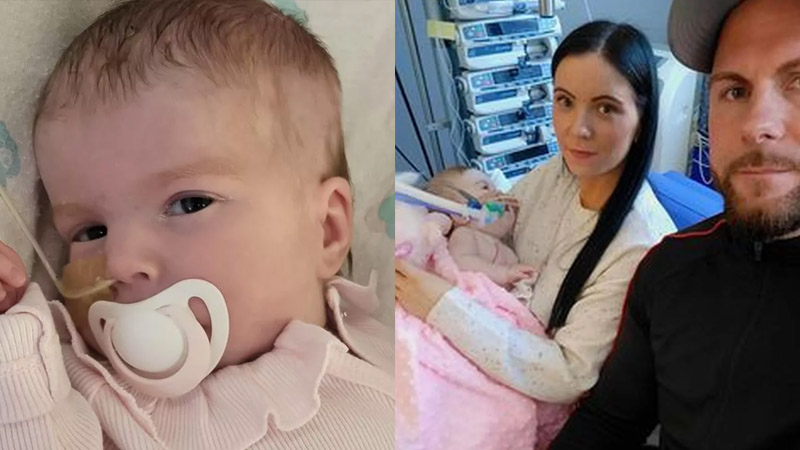
Indi Gregory’s parents lose appeal to keep baby with incurable disease on life support
Share0The parents of Indi Gregory, an eight-month-old critically ill baby, are steadfast in their battle to keep their daughter on life support. Their journey, as chronicled by BBC, highlights the profound emotional, legal, and ethical issues surrounding end-of-life medical decisions.
The dispute began when the High Court permitted doctors to restrict the treatment offered to Indi. This left Dean Gregory and Claire Staniforth, Indi’s parents, facing an emotional and legal whirlwind that tested their resilience.
At the core of this case is a collision between medical ethics and parental rights. While medical experts uphold their duty to provide care without causing harm, parents, like Indi’s, operate from a deep-seated desire to champion their child’s chance at life.
Despite the initial court ruling, Indi’s parents appealed, believing they should have the ultimate say in her medical care. Their conviction rested on their role as parents, ensuring the best possible chance for their daughter’s life.
Yet, in a heart-rending verdict, the Court of Appeal countered their hopes. The court concluded that the parents’ appeal lacked solid grounds and had little chance of success within UK law.
Undeterred, Indi’s parents are now directing their fight to the European Court of Human Rights (ECHR) in Strasbourg. This move underscores the lengths parents can go to when their child’s life is at stake. The ECHR, with its mandate of upholding human rights, is set to decide on this significant case.
End-of-life situations, like Indi’s, present intricate challenges—balancing the best interests of the child, the wishes of the parents, and the ethical duties of medical professionals. Such cases emphasize the need for transparent dialogue between healthcare teams and families. They also call for well-defined decision-making guidelines when the chance of recovery remains uncertain.
Indi Gregory’s story draws attention to the intricate decisions surrounding end-of-life care. It prompts introspection: when facing life and death matters, should the final say rest with the child’s parents or the medical professionals?
As the European Court of Human Rights deliberates on Indi’s case, it serves as a stark reminder of the dilemmas both parents and healthcare providers confront when balancing hope, life, and the acceptance of mortality. The court’s decision could shape future guidelines on end-of-life care, and Indi’s parents are unwavering in their quest to safeguard their daughter’s future.
